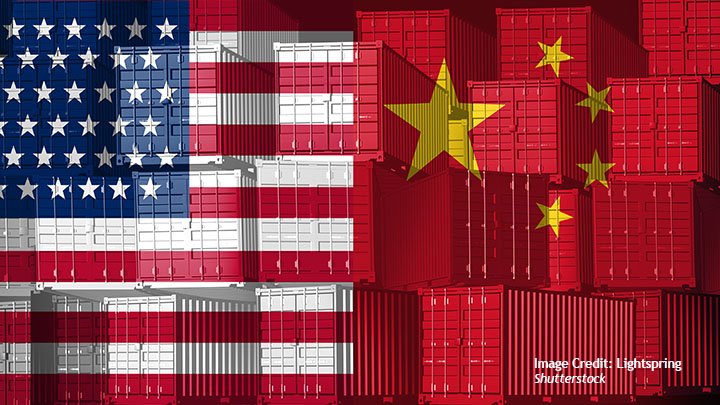
The Fallout of Trump Tariffs: A Strained US-China Relationship.
Trump’s tariffs haven’t just raised prices—they’ve fractured U.S.-China diplomatic trust, escalated global tensions, and left a lasting legacy of uncertainty in international trade and governance.
The implications of President Trump’s tariffs on Chinese goods, examining how they have affected US-China relations and future diplomatic engagements.
In an era marked by global trade tensions, few events have been as pivotal as the implementation of tariffs by President Donald Trump. One might imagine a late-night discussion among economists, where the air is thick with the weight of numbers—the tariffs are not just economic policies, they are also relationship torpedoes, sometimes leading to unexpected diplomatic fallout. Ali Wyne, a senior adviser on US-China ties, warns that these tariffs may have permanently shadowed American interactions with China, especially with Xi Jinping.
The Rationale Behind Trump’s Tariffs
President Donald Trump’s tariffs were a significant part of his economic policy. They aimed to address perceived inequities in trade practices, especially with China. But what were the underlying motives? Let’s break it down.
Economic Protectionism Motives
One of the primary reasons for implementing tariffs was economic protectionism. This term refers to the practice of shielding a country’s domestic industries from foreign competition. Trump believed that by imposing tariffs, he could protect American jobs. But how effective are tariffs in achieving this goal?
- Job Protection: The idea was simple: make imported goods more expensive. This would encourage consumers to buy American-made products.
- Boosting Local Industries: By protecting domestic industries, the hope was to stimulate growth and innovation within the U.S.
However, critics argue that protectionism can have unintended consequences. For instance, it can lead to higher prices for consumers. When tariffs increase the cost of imported goods, businesses often pass those costs onto customers. This raises the question: is protecting jobs worth the potential harm to consumers?
Concerns Over Trade Imbalances
Another significant factor driving Trump’s tariffs was the concern over trade imbalances. The U.S. had an estimated trade deficit of $400 billion with China. This figure raised alarms among policymakers. They feared that such a large deficit indicated unfair trade practices.
Trump’s administration argued that China was engaging in practices that harmed American businesses. They claimed that China was manipulating its currency and subsidizing its industries. This led to a call for action. But did tariffs really address these issues?
While tariffs aimed to reduce the trade deficit, they also complicated relations with China. As Ali Wyne from the International Crisis Group noted, “neither Trump nor Xi will want to convey that he has yielded to the other.” This highlights the complexities of trade wars. They are not just about economics; they also involve national pride and diplomacy.
Impact on Domestic Industries
The impact of tariffs on domestic industries is a mixed bag. On one hand, some industries benefited from reduced competition. For example, steel and aluminum producers saw a boost in demand. On the other hand, many industries faced challenges.
- Increased Costs: Industries that rely on imported materials faced higher costs. This could lead to layoffs or even business closures.
- Retaliation: Other countries, including China, retaliated with their own tariffs. This created a cycle of escalating trade tensions.
Trump famously stated, “Trade wars are easy to win.” However, the reality proved to be more complex. The tariffs sparked a trade war that affected various sectors of the economy. Farmers, for instance, found themselves caught in the crossfire. Many faced reduced exports to China, leading to financial strain.
In summary, Trump’s tariffs were rooted in economic protectionism and concerns over trade imbalances. While they aimed to protect American jobs and industries, the consequences were far-reaching. The complexities of trade wars became evident as both domestic and international dynamics shifted.
As the debate continues, one thing remains clear: tariffs are a double-edged sword. They can protect certain industries while harming others. The challenge lies in finding a balance that supports American workers without burdening consumers.
Consequences on Diplomatic Engagement
The relationship between the United States and China has become increasingly strained. This tension is largely due to the imposition of tariffs, which have not only economic implications but also significant diplomatic consequences. As analysts observe, the current climate may lead to a chilling effect on diplomatic ties.
Increased Tension Between the US and China
One of the most immediate effects of the tariffs is the heightened tension between the two nations. The trade war has escalated, with both sides engaging in a tit-for-tat exchange of tariffs. This back-and-forth creates an environment where cooperation becomes increasingly difficult.
- Tariffs lead to retaliatory measures.
- Each country feels the pressure to respond to the other’s actions.
As Ali Wyne, a senior research and advocacy adviser at the International Crisis Group, points out, neither Trump nor Xi wants to appear weak in negotiations. This desire to maintain a strong public image can further complicate diplomatic efforts. When leaders are unwilling to concede, it creates a stalemate that can last for years.
Potential for Reduced Face-to-Face Negotiations
With the current state of affairs, the potential for face-to-face negotiations is diminishing. Leaders may find themselves boxed into positions where dialogue becomes harder to achieve. The imposition of tariffs has created an atmosphere of distrust, making it challenging for both sides to come to the table.
In this context, the likelihood of high-level meetings decreases. When leaders are unwilling to engage directly, it can lead to a breakdown in communication. This is concerning, as personal interactions often pave the way for understanding and compromise.
Public Perception of Each Leader’s Stance
Public perception plays a crucial role in diplomatic engagement. Both Trump and Xi are aware that their actions are being scrutinized. They must navigate their domestic political landscapes while managing international relations. This dual pressure can lead to more rigid stances, as neither leader wants to appear weak or indecisive.
- Public opinion can influence leaders’ decisions.
- Both leaders may prioritize their domestic image over international cooperation.
The strain on US-China relations may extend for years. As both nations grapple with their respective challenges, the potential for collaboration diminishes. The longer the tariffs remain in place, the more entrenched each side’s position becomes.
In summary, the consequences of the current trade war extend beyond economics. The increased tension, reduced opportunities for face-to-face negotiations, and the impact on public perception all contribute to a complex diplomatic landscape. As both nations navigate these challenges, the path forward remains uncertain.
The Wider Implications for Global Trade
In recent years, trade wars have become a significant topic of discussion. The ongoing tensions between major economies, particularly the United States and China, have raised questions about the future of global trade. The implications of these conflicts extend far beyond the borders of the countries involved. They influence global markets, affect allied nations, and have long-term ramifications for international relations.
Influence on Global Markets and Prices
Trade wars can have a profound impact on global markets. When tariffs are imposed, they create a ripple effect that can alter prices worldwide. For instance, it is estimated that 30% of global GDP is affected by tariffs. This means that a significant portion of the world’s economy is at risk due to these trade disputes.
Moreover, the average price increase on imported goods due to tariffs is around 5%. This may seem small, but it can lead to higher costs for consumers and businesses alike. When prices rise, purchasing power diminishes. People may find themselves paying more for everyday items, which can lead to decreased consumer spending. This, in turn, can slow down economic growth.
Impact on Allied Nations and Their Trade Policies
Allied nations are not immune to the effects of trade wars. They often find themselves in a difficult position, caught between two powerful economies. Countries that rely on trade with the US or China may feel pressured to choose sides. This can lead to strained relationships and altered trade policies.
For example, if a country decides to support the US by imposing tariffs on Chinese goods, it may face retaliation from China. This creates a complex web of alliances and conflicts. Allies may have to navigate these waters carefully to protect their own economic interests.
Long-Term Ramifications for International Relations
The long-term ramifications of trade wars can be severe. As tensions rise, trust between nations can erode. Diplomatic relations may suffer, leading to a more fragmented global landscape. This is particularly concerning given the interconnected nature of today’s economy.
As noted by an economic analyst,
“The global economy cannot afford prolonged strife between the US and China.”
This statement underscores the urgency of resolving trade disputes. Prolonged conflicts can lead to a breakdown in communication and cooperation, which are essential for addressing global challenges.
Furthermore, the interconnected system of global trade means that the fallout from trade wars can affect countries far removed from the conflict. For instance, a small nation that exports goods to China may find its economy suffering due to tariffs imposed by the US. This interconnectedness highlights the need for a collaborative approach to trade policy.
The implications of trade wars extend far beyond the immediate parties involved. They influence global markets and prices, impact allied nations, and have long-lasting effects on international relations. As countries navigate these complex dynamics, it is crucial to recognize the interconnected nature of the global economy. The ripple effects of tariffs pose a threat to the stability of trade networks worldwide. In a time when cooperation is more important than ever, finding common ground is essential for fostering a prosperous global economy.
TL;DR: Trump’s tariffs haven’t just raised prices; they’ve shattered the potential for constructive dialogue with China, leaving a complex legacy for the future of US-China relations.
US-ChinaRelations, XiJinping, EconomicPolicies, TradeWars, InternationalDiplomacy, GlobalEconomy, TrumpTariffs, TradeImpacts
#TrumpTariffs, #TradeImpacts, #GlobalEconomy, #US-ChinaRelations, #XiJinping, #EconomicPolicies, #TradeWars, #InternationalDiplomacy,#TrumpTariffs, #USChinaRelations, #TradeWar, #GlobalMarkets, #DiplomaticTensions, #EconomicPolicy, #TariffImpact, #TradeAgreements, #InternationalRelations, #Geopolitics

